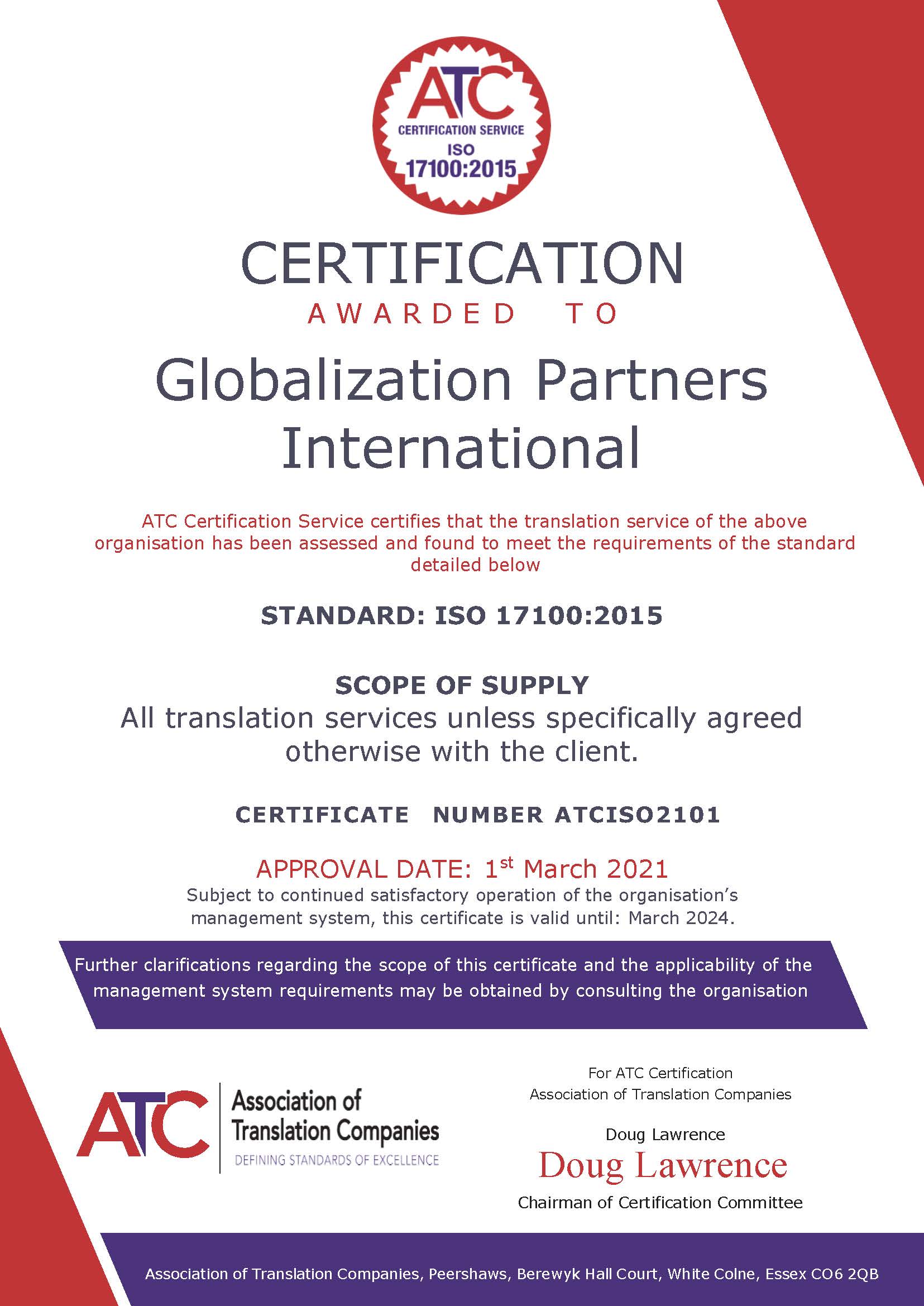News: GPI Has Recertified Through 2024 as an ISO Certified Translation Company
Globalization Partners International (GPI) recently recertified to remain an ISO certified translation company. First certified in 2018, The Association of Translation Companies (ATC) completed an assessment and found GPI to meet all of the required standards to be ISO 17100:2015 certified.
According to ATC, the ISO 17100 translation certification is an “international standard which provides requirements for the core processes, resources and other aspects necessary for the delivery of a quality translation service that meets applicable specifications.”

To be ISO 17100:2015 Translation Services certified a translation company must demonstrate it organizes, delivers and documents its translation services in accordance with ISO 17100 standards including but not limited to:
- Pre-sales processes
- Project manager training
- Project preparation – administrative
- Handling of project-related client information
- Infrastructure to support translation services
- Pre-production processes and activities
- Project preparation – technical
- Project preparation – linguistic aspects
- Vendor management
ISO audits are conducted to verify a translation company meets these international standards and that its delivery of translation services will meet the ISO 17100:2015 Translation Services specifications.
GPI has been adhering to translation best practices in translator recruitment and testing as well as utilizing online checklist-based, fully customizable quality control processes for over 20 years. The ISO certification serves as validation of GPI’s people, processes and tools in providing clients with quality translation services.
An ISO standard is reviewed every five years.
ISO began operations in 1947 and is an independent, non-governmental international organization with members from 161 national standards bodies. Its members develop voluntary, consensus-based, market relevant international standards. These standards support innovation, provide solutions to global challenges, ensure quality, safety and efficiency and facilitate international trade.
